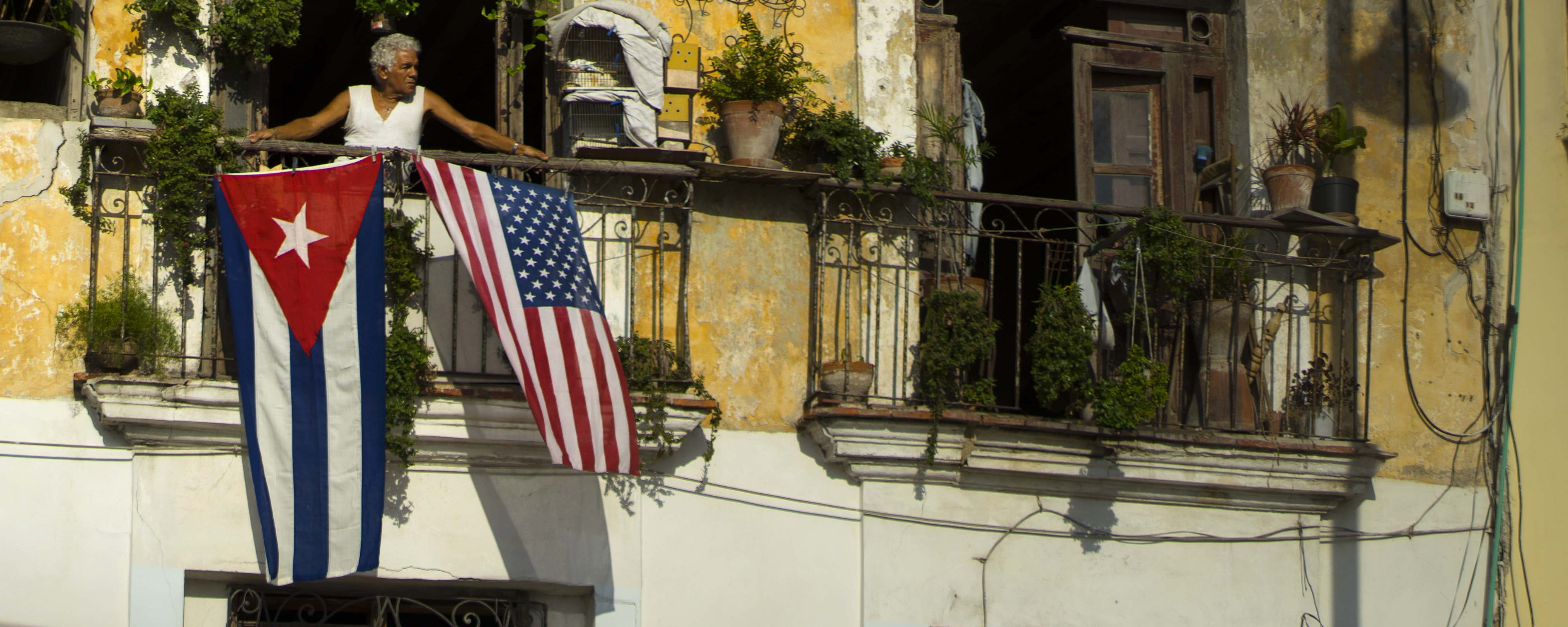Is democracy next for Cuba? Don't count on it.
There are legitimate reasons to normalize relations with Cuba. Democratization is not one of them.


A free daily email with the biggest news stories of the day – and the best features from TheWeek.com
You are now subscribed
Your newsletter sign-up was successful
The U.S. this week took another step toward normalizing its relationship with Cuba, with the State Department reopening its embassy in Havana. The conventional wisdom in foreign policy circles is that this is long overdue. Fair enough — but if you believe that opening up to Cuba will somehow lead to a democratic revolution, then you might be smoking something.
The rationale for Cuba's decades of isolation, which included a strict trade embargo, was twofold. The first was the Cold War: Cuba, with a strategic position off the coast of Florida, was allied with the Soviet Union. Memories of the Cuban Missile Crisis died hard. The second was that the pressure of an embargo might cause the regime to crumble, paving the way for democracy.
(A third, largely unspoken reason was that the squeeze on Cuba had a lot to do with the electoral politics of Florida, a key swing state with an influential Cuban-American community. Make no mistake, the Obama administration's decision to switch course also has to do with this community, whose younger generation tends to feel less passionately about the embargo.)
The Week
Escape your echo chamber. Get the facts behind the news, plus analysis from multiple perspectives.

Sign up for The Week's Free Newsletters
From our morning news briefing to a weekly Good News Newsletter, get the best of The Week delivered directly to your inbox.
From our morning news briefing to a weekly Good News Newsletter, get the best of The Week delivered directly to your inbox.
The logic against the first reason goes like this: The Cold War is over — and the Castros are still around. Yes, Cuba is still authoritarian, but the U.S. deals with plenty of authoritarian countries with an open mind (and wallet).
There's a lot of merit to that view.
The simple fact of the matter is that there's no hard and fast rule about how the U.S. deals with authoritarian regimes. Why be open with Vietnam and put the squeeze on Myanmar, which is (nearly) next door? And let's not even start with the mishmash of policies the U.S. backs in the Middle East, where it supports strongmen in some places and democracies in others. There isn't a universal rule we can apply.
We see this debate over and over again. On the one hand, sanctions do get regimes to turn a new leaf — just look at Myanmar. On the other hand, sanctions don't hurt the regime insiders, who will do fine whatever happens, but the ordinary people who have no say in the matter.
A free daily email with the biggest news stories of the day – and the best features from TheWeek.com
Republicans probably have a point that the Obama administration drove too soft a bargain, and in particular did not insist enough on greater political concessions from the Castros. But that doesn't affect the overall question of whether the U.S. should normalize relations with Cuba.
If you want to say that the embargo wasn't advancing U.S. strategic interests, that it was hurting a lot of ordinary people needlessly, and that normalizing relations will make them and their families better off, that's fine. But if you pretend that lifting the embargo can achieve democratization, which was the other reason the embargo existed in the first place, then you have another thing coming.
The narrative that economic freedom necessarily leads to a flowering of political freedom is one that we've heard a lot. But at least in the past few decades, we've seen the opposite happen. The case in point, of course, is China, which shows that a decent job at economic management and at curtailing corruption will enable an autocracy to live on.
Indeed, improved technology, one of the benefits of greater economic freedom, makes it a lot easier for autocrats to keep tabs on people and to nip democratic movements in the bud. What's more, if you ensure that the business class and the political class are symbiotic, as is the case in China, business interests will often pull the lever for autocracy rather than democracy.
The Castros are still solidly in power. They have a gang of cronies who have an interest in keeping the show going. Many fruits of the new relationship with the United States will accrue to regular people, but many will accrue to the authoritarian power elite. They can buy computers and routers that monitor people's emails, and shut down speech and political organization as well as they always have.
So yes, the embargo may not have served U.S. interests. It may have hurt ordinary Cubans. But lifting the embargo won't do anything for democracy.
Pascal-Emmanuel Gobry is a writer and fellow at the Ethics and Public Policy Center. His writing has appeared at Forbes, The Atlantic, First Things, Commentary Magazine, The Daily Beast, The Federalist, Quartz, and other places. He lives in Paris with his beloved wife and daughter.
-
 Film reviews: ‘Send Help’ and ‘Private Life’
Film reviews: ‘Send Help’ and ‘Private Life’Feature An office doormat is stranded alone with her awful boss and a frazzled therapist turns amateur murder investigator
-
 Movies to watch in February
Movies to watch in Februarythe week recommends Time travelers, multiverse hoppers and an Iraqi parable highlight this month’s offerings during the depths of winter
-
 ICE’s facial scanning is the tip of the surveillance iceberg
ICE’s facial scanning is the tip of the surveillance icebergIN THE SPOTLIGHT Federal troops are increasingly turning to high-tech tracking tools that push the boundaries of personal privacy
